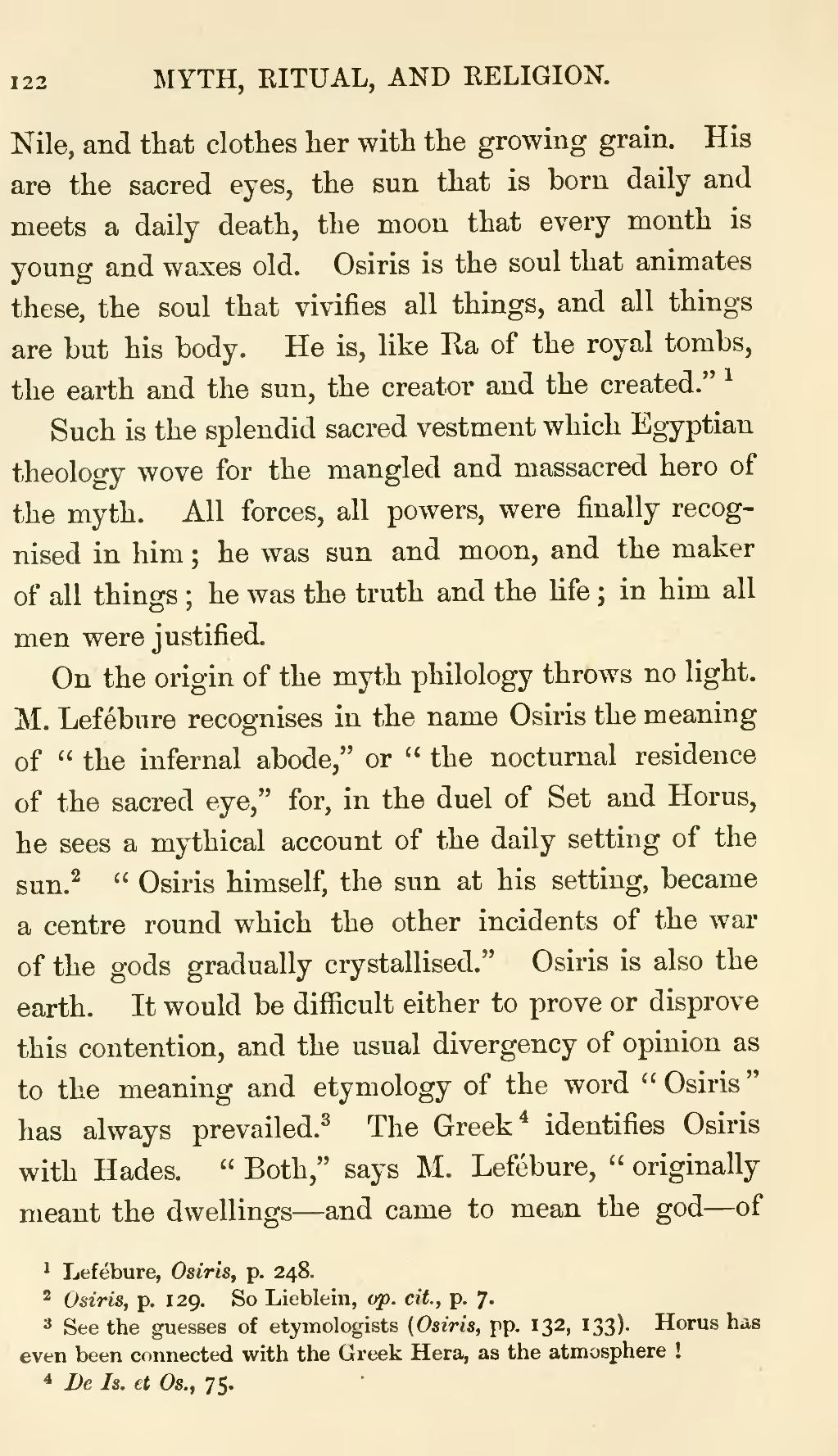Nile, and that clothes her with the growing grain. His are the sacred eyes, the sun that is born daily and meets a daily death, the moon that every month is young and waxes old. Osiris is the soul that animates these, the soul that vivifies all things, and all things are but his body. He is, like Ra of the royal tombs, the earth and the sun, the creator and the created."[1]
Such is the splendid sacred vestment which Egyptian theology wove for the mangled and massacred hero of the myth. All forces, all powers, were finally recognised in him; he was sun and moon, and the maker of all things; he was the truth and the life; in him all men were justified.
On the origin of the myth philology throws no light. M. Lefébure recognises in the name Osiris the meaning of "the infernal abode," or "the nocturnal residence of the sacred eye," for, in the duel of Set and Horus, he sees a mythical account of the daily setting of the sun.[2] "Osiris himself, the sun at his setting, became a centre round which the other incidents of the war of the gods gradually crystallised." Osiris is also the earth. It would be difficult either to prove or disprove this contention, and the usual divergency of opinion as to the meaning and etymology of the word "Osiris" has always prevailed.[3] The Greek[4] identifies Osiris with Hades. "Both," says M. Lefébure, "originally meant the dwellings—and came to mean the god—of
